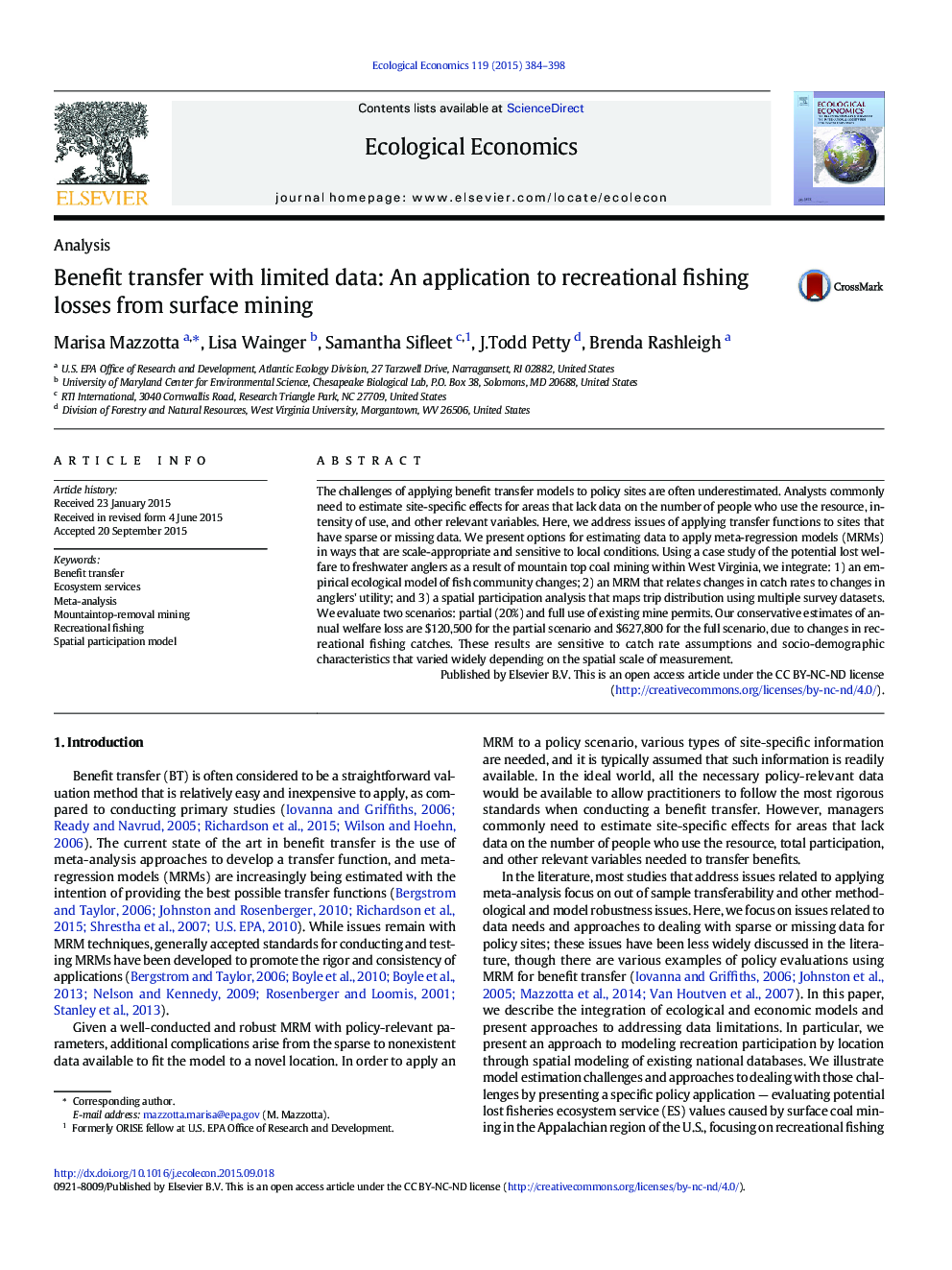| Article ID | Journal | Published Year | Pages | File Type |
|---|---|---|---|---|
| 5049255 | Ecological Economics | 2015 | 15 Pages |
â¢Mountaintop mining may reduce game fish abundance, which has social welfare impacts.â¢Decision makers want to quantify mining's effects on ecosystem services.â¢Estimates of welfare reductions are sensitive to uncertain policy site parameters.â¢We present new techniques for capturing recreational participation.â¢Spatially-explicit analysis enhances capture of heterogeneity in benefit transfer.
The challenges of applying benefit transfer models to policy sites are often underestimated. Analysts commonly need to estimate site-specific effects for areas that lack data on the number of people who use the resource, intensity of use, and other relevant variables. Here, we address issues of applying transfer functions to sites that have sparse or missing data. We present options for estimating data to apply meta-regression models (MRMs) in ways that are scale-appropriate and sensitive to local conditions. Using a case study of the potential lost welfare to freshwater anglers as a result of mountain top coal mining within West Virginia, we integrate: 1) an empirical ecological model of fish community changes; 2) an MRM that relates changes in catch rates to changes in anglers' utility; and 3) a spatial participation analysis that maps trip distribution using multiple survey datasets. We evaluate two scenarios: partial (20%) and full use of existing mine permits. Our conservative estimates of annual welfare loss are $120,500 for the partial scenario and $627,800 for the full scenario, due to changes in recreational fishing catches. These results are sensitive to catch rate assumptions and socio-demographic characteristics that varied widely depending on the spatial scale of measurement.
Graphical AbstractDownload full-size image
